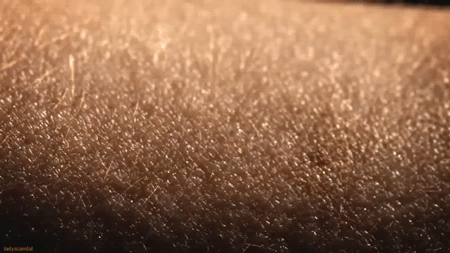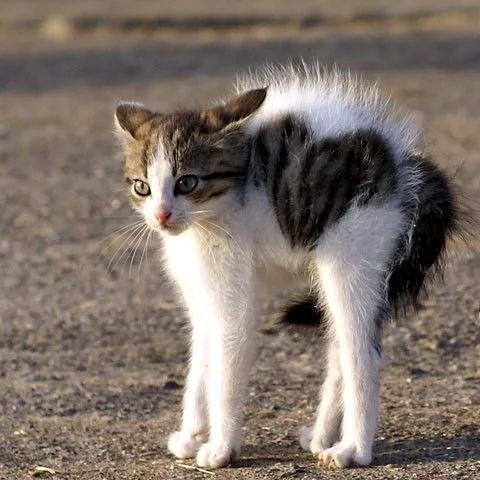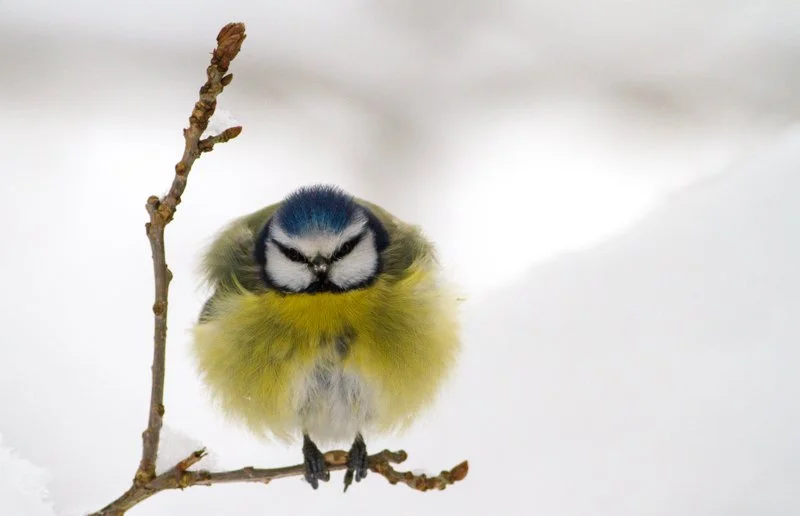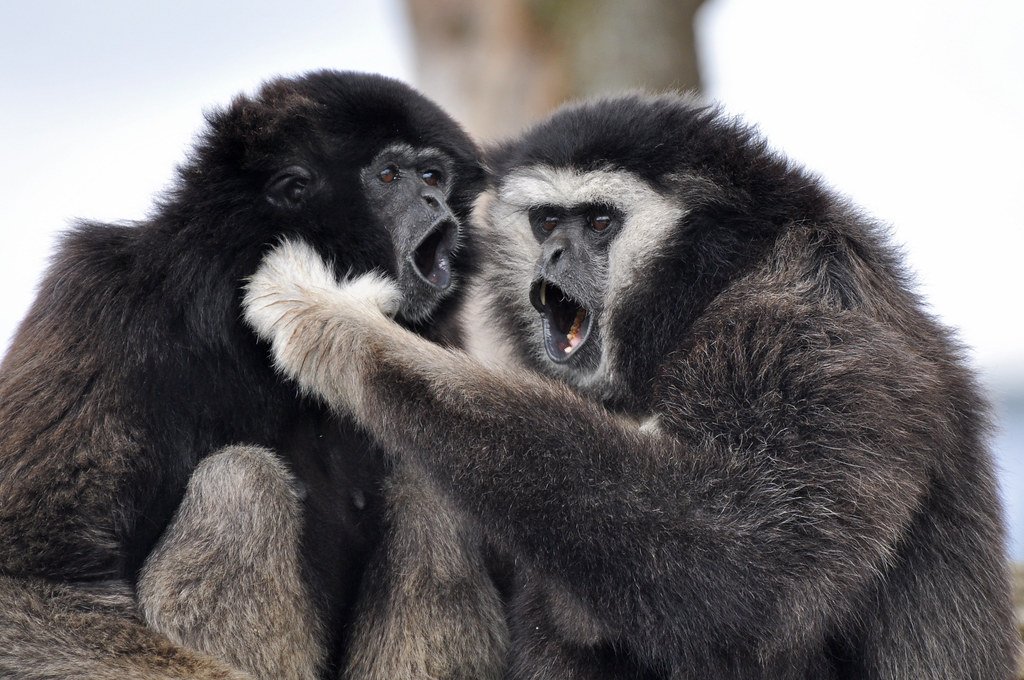By The Landlord
“We met upon a hill, the night was cool and still
She sucked my dormant will
Mother, she blew my brain, I will go back again
My god, she shook me cold.” – David Bowie, She Shook Me Cold
“When I sing, I feel like when you're first in love. It's more than sex. It's that point two people can get to they call love, when you really touch someone for the first time, but it's gigantic, multiplied by the whole audience. I feel chills.” – Janis Joplin
“Music has a wonderful power of recalling in a vague and indefinite manner, those strong emotions which were felt during long-past ages, when, as is probable, our early progenitors courted each other by the aid of vocal tones. And as several of our strongest emotions—grief, great joy, love, and sympathy—lead to the free secretion of tears, it is not surprising that music should be apt to cause our eyes to become suffused with tears, especially when we are already softened by any of the tenderer feelings.
Music often produces another peculiar effect. We know that every strong sensation, emotion, or excitement—extreme pain, rage, terror, joy, or the passion of love—all have a special tendency to cause the muscles to tremble; and the thrill or slight shiver which runs down the backbone and limbs of many persons when they are powerfully affected by music, seems to bear the same relation to the above trembling of the body, as a slight suffusion of tears from the power of music does to weeping from any strong and real emotion.” – Charles Darwin, The Expression of the Emotions in Man and Animals (1872)
Happy New Year to you all. So, here’s the thing. Do you ever get a piloerection? (said the actress to ...)
Seems as good a question as any to start the year. Why? Because it could be a symptom of being properly alive, and as far this place is concerned, a sign and evidence of of what, at best, music is all about.
Goosebumps are so named as they might physically resemble on us the skin of a plucked goose or chicken, and come on the arms, back of the neck, or sometimes the rest of the body, sending involuntary shivers to these nerve endings. It’s a retraction of the skin’s piloerector muscles. They are a combined physical and emotional reaction, but are what’s known in humans as a vestigial response or vestigial reflex, something that’s lost its original function, a throwback to our farther off mammalian past, when we were far hairier.
But it has evolved in modern life into something else more mysterious, intangible, cultural, but can also be very personal, something deep within our subconscious experience as well as our ancestral heritage.
Goosebumps’ animal origin is a flight-or-fight mechanism. Furry animals often do this when challenged or frightened, to make themselves look bigger, such as when a cat suddenly encounters a dog, or even rival cat in the neighbourhood, or a porcupine spreads out its quills to counter a predator. As with fur, birds might also do this for display, or as a way to create warmth by trapping pockets of air in between feathers.
But that’s this would be a comically absurd response when you’re comparably a hairless ape. So why and when does it happen to us now? It might be triggered by a sudden shock image or sound in a horror film, a shock/fear/pleasure moment all rolled into one. Another word for it is, appropriately enough, horripilation. I get that several times when watching, for example, Stanley Kubrick’s The Shining, even though I know perfectly well what’s coming. It comes from the extraordinary skilful manipulation of sound and image as well as the acting performance.
Goosebumps can also come in moments of sexual arousal, such as a gentle kiss on the neck or other erogenous areas, but there can also be less fun causes, such as a sudden exposure to cold temperatures. Or more alarming, they can be a regular symptom for drug addicts going cold turkey – again another visual reference to the skin appearance.
Goosebumps can also come with the excruciating sound of fingernails on a blackboard. What’s going on there? There are many scientific studies about goosebumps, especially in response to music, but on that particular response, American psychologist Randolph Blake of the Vanderbilt Center for Cognitive and Integrative Neuroscience conducted a 2006 study in which he noted that the core sound was acoustically similar to that of a primate distress call.
But this week’s topic is not, hopefully, about horror- or cringe-inducing sounds, but those that more pleasurably work on our emotions and cause those rare and precious moments when we get richly complex reaction of involuntary goosebumps. Yet in some cases, it has been found, rather unusually, that certain individuals can induce them at will. From where else, and how does this reaction arise from our animal past? Here’s more from Darwin, again from his 1972 publication, The Expression of the Emotions in Man and Animals, in which he even goes into the deeper musical dynamics of gibbon calls:
“I maintain, that the habit of uttering musical sounds was first developed, as a means of courtship, in the early progenitors of man, and thus became associated with the strongest emotions of which they were capable,—namely, ardent love, rivalry and triumph. That animals utter musical notes is familiar to every one, as we may daily hear in the singing of birds. It is a more remarkable fact that an ape, one of the gibbons, produces an exact octave of musical sounds, ascending and descending the scale by half-tones; so that this monkey "alone of brute mammals may be said to sing." From this fact, and from the analogy of other animals, I have been led to infer that the progenitors of man probably uttered musical tones, before they had acquired the power of articulate speech; and that consequently, when the voice is used under any strong emotion, it tends to assume, through the principle of association, a musical character. Fine music, from the vague emotions thus excited, causes a shiver to run down the backs of some persons.”
Gibbons know their octaves …
Grand, profound observations, but many scientific studies, especially in the last 20 years or so, have built on this, particularly in the analysis of particular songs that may induce this reaction, such as this from Queen Mary University of London, which produces graphs and identifies ratios of voice, instrument and examples that might make up the magical goosebump and dopamine-hit formula.
The internet is full of such lists, citing songs that might do this, but also often include examples because they are well-known hits, and from a mass-market musical experience. But that may not be a bad thing as something we grow up with. We are all connected by our musical experience. Prince’s Purple Rain, for example, is commonly referred to in these studies, creating moments that induce what’s known as a high-percentage “chill ratio” at certain moments in this song, when his voice reaches a screaming climax, or he breaks into a fabulous guitar solo. What aside from the Purple One showing his musical prowess, is really happening there?
In a 1995 study, The Emotional Sources of Chills Induced by Music, Estonian-American neuroscientist Jaak Panksepp suggests that one reason why certain songs or music have the goosebump effect is because they contain a moment when a solo voice (vocal or instrument) comes out of a larger ensemble, and on a deeper level mimics a separation call that is hardwired within us to feel empathy and a strong emotional pull. That’s quite profound.
There also appears to be a prevalence of songs that exude melancholy and empathy rather than anger or humour in goosebump-inducing category, though that is all open to interpretation of course, and that’s what we’re here to find out. Yet that sense of being alone, yet somehow together, can play a potent role in creating that shivery bittersweetness.
But many other more particular musical or lyrical mechanisms or elements might do this to you. A particular swelling movement into a chorus? Powerful, rich orchestral music? Beautifully stark or fragile melodies or harmonies? Particularly strong, emotionally powerful, killer lyrics? Sudden changes in the structure or sound? Or certain voices that evoke just the right emotion from certain singers. In my case, especially if I haven’t heard him for a long time, Al Green, for starters. Is there a trigger that comes with a voice heard from the past, or can it occur with a song heard for the first time? And what about vocalists from other cultures in other languages, such as the passionate purveyors of fado?
So what songs, popular, or lesser known do this to you, and why? There are others that can give me goosebumps. I sometimes get this with, as a dark example, Joy Division songs such as Love Will Tear Us Apart, Dead Souls, or Atmosphere. Is it the chord changes, melody, or the ghostly voice and presence of Ian Curtis, whose tragic death arrived when I was at a young, impressionable age, and in line with many studies, induce that potent combination of an initial sense of insecurity and threat, but also empathy? Perhaps, like the Panksepp theory, it’s that powerful combination of feeling vulnerable, alone, but also within a connectedness that gives music and magical power.
This is a broad but also very specific topic, but hopefully with inspire you to share personal stories and emotions along with each song, so please also explain your choices, and try to identify moments in songs or pieces that really have the goosebump effect.
We’ve taken on topics in the past, such as songs about skin, or songs that provide a form of nutrition, but this certainly different.
Taking on this topic, to whom, appropriately, this also arrive as much as surprise as to the rest of your, is the musically astute Maki! So please share your goosebump inducing songs or musical pieces, adding brief explanations, in comments below in time for last orders, 11pm on Monday UK time, for playlists published next week. In all the right ways, it should be a hair-raising experience.
New to comment? It is quick and easy. You just need to login to Disqus once. All is explained in About/FAQs ...
Fancy a turn behind the pumps at The Song Bar? Care to choose a playlist from songs nominated and write something about it? Then feel free to contact The Song Bar here, or try the usual email address. Also please follow us social media: Song Bar Twitter, Song Bar Facebook. Song Bar YouTube, and Song Bar Instagram. Please subscribe, follow and share.
Song Bar is non-profit and is simply about sharing great music. We don’t do clickbait or advertisements. Please make any donation to help keep the Bar running:





